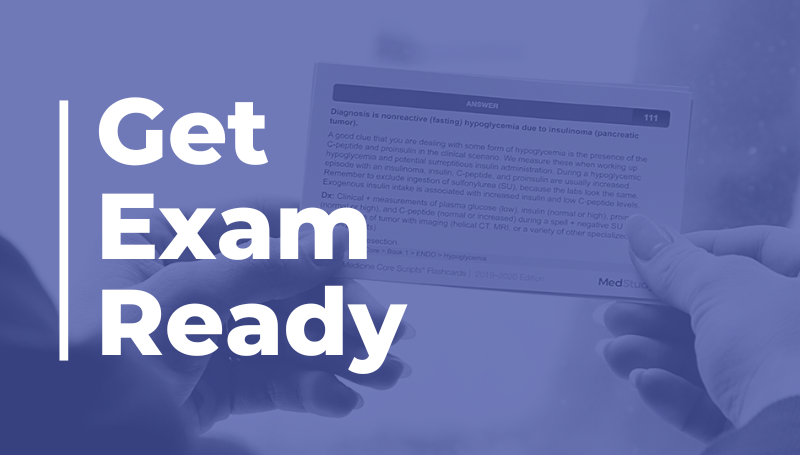13 Foolproof Ways to Boost Your Board Exam Passing Score

Preparing for your board exam is one of the most rigorous things you'll ever do! It requires months and months of prep. Looking for the best ways to boost your board exam passing score? Besides the obvious—studying hard—here are our top 13 tips to boost your board exam passing score.
1. Understand your board exam passing score
Understanding what the board exam passing score is for the exam you need to take is the first step to, well, actually passing the exam! Here's a breakdown of some board exam passing scores:
ABIM passing score
In order to get an ABIM passing score, you need to score at least a 366, which is 64% of questions correct on the ABIM exam. The 2022 ABIM certification pass rate was 87% and the maintenance of certification exam pass rate was 94%. Check out this mock Maintenance of Certification exam score report to see overall performance that is reported on a standardized scale ranging from 200 to 800 points.
Pediatric board exam passing score
The pediatric board exam passing score for ABP MOC exams is 180 based on a scale ranging from 1 to 300. The Pediatric board exam passing scores are established by "standard-setting"—meaning that a panel of practicing physicians determines the level of knowledge (based on an established model) an examinee must demonstrate to pass the exam. The pediatric exam initial certification pass rate for 2021 was 81% and the maintenance of certification exam pass rate was 89%.
MOCA–Peds passing score
Like the pediatric recertification 10–year exam, the passing score for MOCA–Peds is also 180 based on a scale ranging from 1 to 300. Check out our 2-prong approach to preparing for the MOCA-Peds exam.
USMLE Step 1 passing score
As of January 1, 2022, the USMLE Step 1 moved to a pass/fail model. So exam takers will no longer get a 3-digit number. In 2021 the pass rate for Step 1 for MD degrees was 95% and for DO degrees it was 94%. Check out this mock USMLE Step 1 pass report to see how overall performance is recorded.
USMLE Step 2 passing score
As of July 1, 2022, the USMLE Step 2 passing score increased by 5 points and is now 214 on a scale ranging from 1 to 300. In 2021 98% of MD and DO degrees passed Step 2.
Also, keep in mind that though the Step 2 passing score is 214, you might strive for a higher score depending on what specialty or residency program you'd like to go into (especially since Step 1 is no longer scored)!
2. Create a study plan
Meet MedStudy's Personal Trainer to guide you through your study material
Before you even start to think about opening up a book or starting your studies, read through the free StudyWise guide. It’s a quick read that will give you study tips and completely change the way you think about putting together a study schedule.
After you read through the StudyWide guide, you'll want to set up your own Personal Trainer. Personal Trainer will ask you when you plan to take your board exam and then it shows you what you need to be studying every to hit to your goal and ace your exam.
3. Take a pretest before you study
Before you dive into a topic, doing a quick pretest will prime your brain and get you ready for what you're about to review. It also gives you hints about what to look out for while you read or watch the material.
One great way to implement this is to use the Preview | Review sections at the beginning of each new topic in the Core. These are in a gray box at the beginning of each section, and the questions pull out the highest-yield info for that section. Your Personal Trainer will also show you all of the Preview | Review questions on a topic in the "Preview" section of your study board.
Pro Tip: Read through the questions on the Core topic and dredge up all the info you can in your head about it. Then read through the text, paying extra attention to the highlighted areas. The highlighted text includes must-know concepts and the answers to the Preview | Review questions.
4. Make mental connections
While studying a specific topic or disease, connect the new information with something you already know to help you retain new knowledge. The more personal the association, the more memorable it will be.
A great way to make information more memorable is to tell a story about it. Or, make up a story about it in your head. Stories are a series of events, and our episodic memory mechanisms are most at home cataloging and encoding events. So, the “who, what, where, why, and when” of an event is encoded along with its importance. As you go through a Q&A session, come up with some memorable and personal stories for the patient cases presented.
5. Reflect as you learn new material
When you stop to take breaks while reading or reviewing, reflect on what you have read and learned during that section. The attempt to understand makes that information more memorable, so you're more likely to remember it when you see it on an exam question.
Purposefully repeating the process of recalling previously learned information is called retrieval practice, and doing retrieval practice on the same material multiple times with progressively longer periods between will help the material stick in your brain better.
6. Self-test with a study group or study buddy
Study groups encourage you to actively deepen and clarify your own understanding of topics. When you're in a group environment, you can each explain your answer to a Q&A with the group. Then, if someone else has a special trick for remembering something, they can pass it along to you, too!
In addition, study colleagues can be a good source of encouragement, providing increased confidence in your understanding of new and review material.
7. Self-correct when you answer wrong
Did you know you're actually more likely to remember an answer you initially got wrong? So if you have to guess on a question and get it wrong, make sure you go back and self-correct!
If you take a Q&A session in our Test Mode feature, you’ll see your report card at the end of the quiz. The report card will break down the questions you got correct and incorrect. You can then go through the ones you got wrong and read up on the full explanation of why the correct answer option is right and why the distractor options are wrong.
You can create a new session called "curated review," which will show you questions you marked as “not sure” or “low confidence”—regardless of whether you got them right or wrong—as well as questions you marked as “high confidence” but answered incorrectly. Use this filter to make sure you have gone through and know all the question material by the time you get to the test.
8. Study in a variety of locations and times
If you always study in the same place at the same time every day, it’s time to change it up. Why? Learning in a variety of environments helps your brain remember more of what you study!
If you're sitting at your desk in the same room every single day, it's time to add a little variety to your location. Another way to mix up your study environment is to listen to music while you study.
9. Go through a handful of topics at a time
Just like how you want to mix up the location you study, you also want to mix up the material that you're studying! When you want to mix it up, don't just create a Q&A session over one topic. Create a session that will give you questions from any topic.
Doing this will more accurately replicate the exam experience. You need to be ready for whatever the exam throws at you!
10. Take notes in the form of questions
In the margins of your Core or Course Syllabus, write any questions you might have, or what you want to look into further. Then, during your next study session follow up by searching for the answers.
This active note-taking strategy will help you really engage in the content and learning process. Plus, it's is more effective than passive underlining or highlighting what you think is important.
11. Take frequent breaks
Frequent breaks are important to keep your brain motivated and on track! Dr. Cherilyn Cecchini, a Pediatrician who used MedStudy to pass her boards shared:
“Taking breaks when studying is so important to avoid burnout. Without scheduled breaks, I would find myself naturally taking them anyway by simply focusing on things outside of my examination materials. Breaks became key for me. Even in the last three to four days leading up to the exam, I made sure to take breaks.” -Dr. Cherilyn Cecchini
For every 50 minutes of study, take at least a 10-minute break. This refreshes your attention when you return to study!
12. Get some sleep after you learn something new
Ever walked into a test after an all-night cram session? If so, you likely learned the hard way that your peak performance occurs when you’re well-rested (and not amped up on caffeine).
Studies show that sleep after learning promotes consolidation of the material, an essential memory process that happens only during sleep. So yes! This is the sign you've been looking for to get to sleep early.
13. Don’t cram!
Cramming is not only super tiring, it does nothing to relieve the anxiety that you may not remember crucial information when you need it. That’s because cramming only works with short-term memory.
The information you learned seems to go away almost as soon as you finish studying! Stick with your study schedule so you're not forced to cram last minute.
For more ways to execute good methodology when you’re studying check out our StudyWise Guide.


